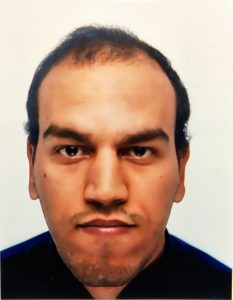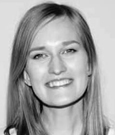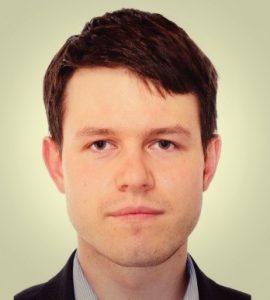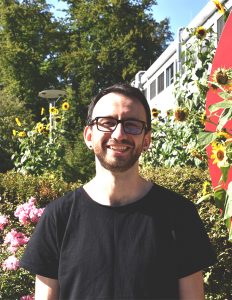Anna Kreshuk
EMBL Heidelberg
Germany
EMBL Course
EMBL is committed to sharing research advances and sustaining scientific interaction throughout the coronavirus pandemic. We are delighted to announce that the course is going virtual and invite you to join us online.
The advent of deep learning has brought a revolution in the field of computer vision, including most tasks and research questions concerned with microscopy image analysis. Neural networks have been successfully used for image restoration, classification and segmentation, for the detection of objects and characterisation of their morphology, for high-throughput imaging and large-scale processing in 3D. Despite these advances, training and deployment of such neural networks remains difficult for practitioners of image analysis. The aim of our course is to close this gap and teach the participants – in the most hands-on way possible – to apply deep learning-based methods to their own data and image analysis problems.
This is a blended learning course with practical and theoretical sessions. Participants should provide an outline of one image analysis task they would like to work on during the course.
We will begin with 3 pre-course sessions (on Friday, 3 December 2021, Friday, 17 December 2021 and on Monday, 10 January 2022) which will bring everyone to a good starting position for a week-long intensive virtual course in January 2022. The 3 pre-course sessions will have associated homework. The week-long course in January 2022 will include a few talks, but will mostly be devoted to hands-on work on real data, in small groups of 3-4 participants.
This course is aimed at both core facility staff and research scientists.
Prerequisites for this workshop are programming skills in Python and ideally Tensorflow, Keras or Pytorch as well as basic knowledge of machine learning theory.
After this course you should be able to:
EMBL Heidelberg
Germany

EMBL Heidelberg
Germany

University of Angers and ESAIP
France

INSA
France

University of Angers
France

EPFL
Switzerland
EMBL Heidelberg
Germany

INSA
France

ENS Rennes
France

Tooploox
Poland

ETH Zürich
Switzerland

Tooploox
Poland

ETH Zürich
Switzerland

Tooploox
Poland

EMBL Heidelberg
Germany

Training Lab Technician
EMBL Heidelberg
Germany

Course and Conference Officer
EMBL Heidelberg Germany
Got something to say? Tweet it with #EMBLDeepLearning
All times in the programme below are shown as the time in Europe/Berlin.
To find out the equivalent time zone in your location, enter Berlin, the programme time and date along with your city into the Time Zone Converter.
Pre-course sessions (mandatory)
Friday, 3 December 2021, 13:00 – 14:30
Friday, 17 December 2021, 13:00 – 14:00
Monday, 10 January 2022, 13:00 – 14:00
| Time | Speaker |
|---|---|
| 12:45 – 13:00 | Check-in of the day |
| 13:00 – 13:15 | Welcome and course overview |
| 13:15 – 14:30 | Icebreaker |
| 14:30 – 14:45 | Break |
| 14:45 – 15:30 | Live talk followed by Q&A session Anna Kreshuk – EMBL Heidelberg, Germany |
| 15:30 – 16:00 | Introduction to practicals with instructors |
| 16:00 – 18:00 | Practicals in small groups |
| 18:00 – 18:30 | Meet the instructors |
| 18:30 – 19:00 | Speednetworking |
| Time | Speaker |
|---|---|
| 12:45 – 13:00 | Check-in of the day |
| 13:00 – 13:45 | Live talk followed by Q&A session Martin Weigert – École Polytechnique Fédérale de Lausanne (EPFL), Switzerland |
| 13:45 – 14:15 | Meet the instructors |
| 14:15 – 16:15 | Practicals in small groups |
| 16:15 – 16:45 | Meet the instructors |
| 16:45 – 17:00 | Break |
| 17:00 – 18:00 | Social activity |
| Time | Speaker |
|---|---|
| 12:45 – 13:00 | Check-in of the day |
| 13:00 – 13:45 | Live talk followed by Q&A session David Rousseau – University of Angers, France |
| 13:45 – 14:15 | Meet the instructors |
| 14:15 – 16:15 | Practicals in small groups |
| 16:15 – 16:45 | Meet the instructors |
| 16:45 – 17:00 | Break |
| 17:00 – 18:00 | The AI: Let’s talk about it! |
| Time | Speaker |
|---|---|
| 12:45 – 13:00 | Check-in of the day |
| 13:00 – 13:20 | Live talk followed by Q&A session: Image classification Constantin Pape – EMBL Heidelberg, Germany |
| 13:20 – 13:40 | Live talk followed by Q&A session: Segmentation David Rousseau – University of Angers, France |
| 13:40 – 14:00 | Live talk followed by Q&A session: Classification David Rousseau – University of Angers, France |
| 14:00 – 14:30 | Quiz break |
| 14:30 – 15:00 | Meet the instructors |
| 15:00 – 17:00 | Practicals in small groups |
| 17:00 – 17:30 | Meet the instructors |
| Time | Speaker |
|---|---|
| 12:45 – 13:00 | Check-in of the day |
| 13:00 – 15:00 | Group activity: Finish practicals, preparation of presentations |
| 15:00 – 15:15 | Break |
| 15:15 – 16:30 | Group presentations Groups 1-3: What worked, what didn’t, what could be done next? |
| 16:30 – 16:45 | Break |
| 16:45 – 18:00 | Discussion and wrap-up Groups 4-6: What worked, what didn’t, what could be done next? |
| 18:00 – 19:00 | Discussion: From Classroom To Core Facility with: Olivier Burri, EPFL, Switzerland Martin Jones, The Francis Crick Institute, UK Laura Murphy, The University of Edinburgh, UK Anna Klemm, Uppsala University, Sweden Alvaro Hernan Crevenna Escobar, EMBL Rome, Italy |
| 19:00 | Course Wrap-up and Farewell |
The course is limited to 24 participants. For selection purposes, please note that your application will not be considered without a letter of motivation.
Registration Fees (include admission and all course materials):
| Academia | €180 |
| PhD Student | €180 |
| Industry | €320 |
The registration fee should be paid only after acceptance to the course. The results will be announced approximately 2-3 weeks after the application deadline.
After you have logged in and successfully registered, you will receive an email asking you to submit your motivation letter. Click on the link provided and enter your motivation letter in the text box provided. Alternatively you can submit your motivation letter by clicking on the link on the confirmation page directly after registering.
Instructions
Please note:
Motivation letter length: The maximum limit of 2000 characters (ca. 200 words) refers to manually typed text (spaces included).
Free field text length: The maximum characters for your answers in the free field text boxes is 255 (spaces included).Text only: If you copy-paste the text, hidden formatting might still be included and you will be informed that your text exceeds the character limit. We recommend either:
Symbols: If you have special symbols in your text make sure you are using Unicode characters, otherwise these will not be recognised by the tool.
For further information about registration and motivation letter submission please refer to the FAQ page.
Registration Fee Waivers
All academic and student registrants are invited to apply for a registration fee waiver, provided by the EMBL Advanced Training Centre Corporate Partnership Programme and EMBO. The registration fee waiver covers the registration sum that you have paid to attend the meeting. Conference participants are not required to pre-pay the registration fee to be selected for a fee waiver for a virtual meeting. If you have already paid the registration fee and are awarded a fee waiver, it will be reimbursed after the meeting. Course participants are required to pay the course fee in advance, which will then be reimbursed after the recipient has attended the course.
For participants and speakers with childcare responsibilities there is the possibility to apply for a grant, provided by the EMBL Advanced Training Centre Corporate Partnership Programme and EMBO, to offset childcare costs incurred when participating at a virtual event. Eligible costs include fees for a babysitter or childcare facility or travel costs for a care giver. Please note that priority will be given to early stage researchers. Costs will be reimbursed after the meeting only once a reimbursement form and original receipts have been received. Attendance at the event is required in order to be eligible to receive the reimbursement. In order to apply for this grant, you must be registered by the abstract submission deadline.
Applications for financial assistance can be submitted via the submission portal* (for the submission of abstracts for conferences or the submission of motivation letters for courses) by completing the Financial Assistance Application Section (underneath the section for entering abstract/motivation letter information). The link to the portal can be found in the registration confirmation email that you will receive after registering for the conference or course.
For conferences, if you are not submitting an abstract, you can still apply for financial assistance in the submission portal. Read the instructions on how to apply for financial assistance.
Note that priority will be given to those submitting an abstract to present at the conference. In your application you will be asked to answer questions regarding your motivation for applying, and, for registration fee waivers, the reasons why your lab cannot fund your attendance and how your attendance will make a difference to your career. Application for financial support will not affect the outcome of your registration application.
*For some events, applications for Childcare Grants will still be done by email. Information about the grant will be sent out shortly after the abstract/motivation letter deadline. Please contact the event Conference Officer if you have any questions.
The scientific organisers will select the recipients of registration fee waivers during the abstract selection process for conferences and the participant selection process for courses. Results will be announced approximately 3 – 4 weeks before the event start date. Selection results do not impact your admission to the meeting. Registration fee waiver selection is based on your current work or study location, your motivation for applying, the reasons for needing financial support and the impact this event will have on your career. Childcare grants are allocated based on career stage, with priority given to early stage researchers.
Check out this list of external funding opportunities or get more information on attending the conference as an event reporter.
For further information about financial assistance please refer to the FAQ page.
Below you will find the software and technical requirements for this course. You will need admin rights to be able to install the software on your computer and we recommend you try this before the course. If you do not have admin rights, please contact your technical support team in advance to make sure the software can be installed.
The EMBL eCampus learning platform will be used to collaborate, communicate and network with all of the course participants. All participants will receive information on how to join shortly before the course. We recommend using Chrome, Safari or Mozilla Firefox browsers for eCampus.
Zoom will be used for the live talks and Q&A sessions. More information will be provided closer to the start of the course.
While using the software during the course, please make sure you have nothing else using your bandwidth. We recommend using a wired connection.
Please find additional information including FAQs and terms and conditions on our Information for Participants page.
Sponsorship Opportunities
We offer a variety of event sponsoring possibilities, with the flexibility to select a set sponsorship package or combine individual sponsorship options to suit your event budget. Discounts are available for companies sponsoring multiple events at EMBL Heidelberg. View other conferences, or contact sponsorship@embl.de for further information.
If you are interested in becoming a media partner of this event, please visit our media partnerships webpage.
Date: 17 - 21 Jan 2022
Location: Virtual
Deadline(s):
Registration: Closed
Organisers:
Contact: Diah Yulianti